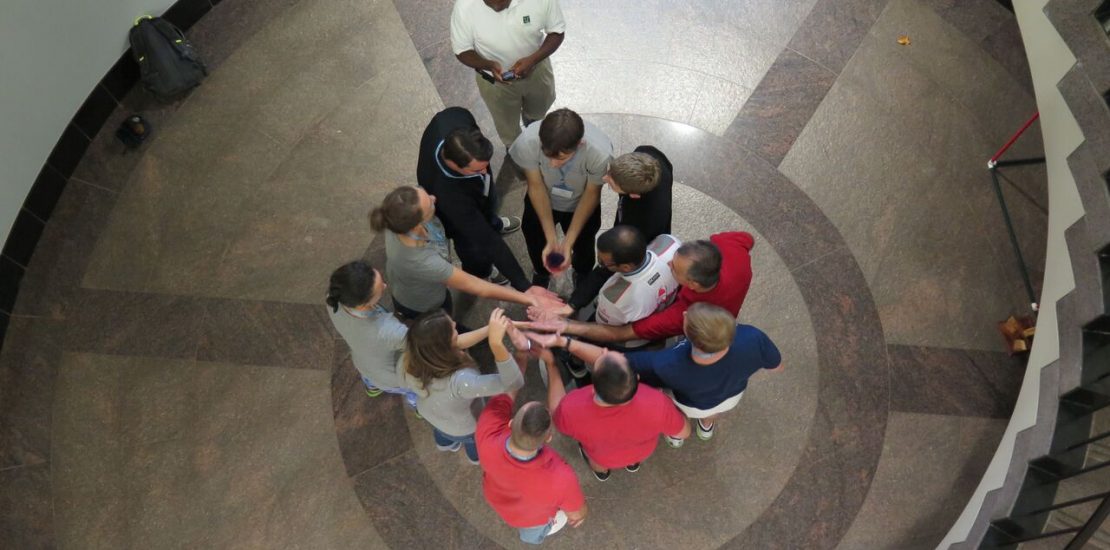- October 25, 2016
- Posted by: LTI
- Categories: Corporate Team Building, LTI News

Millennials are quickly entering the workforce and will soon become business leaders. That’s why most managers are asking: how are they different, how do we recruit them, and how do we motivate this unique generation?
According to research, this group is defined by social awareness, big dreams, and a desire for autonomy. Their ideas about what “work” or what an “office” should look like are different than your Generation X and older employees. Building a team of millennials in your workplace will likely feel different and require a new set of management skills than required with other teams. Here are some practical tips on how to approach your millennial team.
What Millennials Want from Work
Millennials tend to have a strong preference for fun and relaxed work environments. They have a mindset of continuous learning, which makes them far more flexible and able to grow and adapt in the workplace. It also means teambuilding is a welcome experience.
According to an article in Entrepreneur, one company found that “more millennials (79 percent), found ‘team’ or ‘culture’ building activities in their organization significantly helped retain talent, while only 46 percent of baby boomers (aged 51-60) felt the same. Asked if team building was worth the time and effort, 88 percent of the millennial employees responded positively versus just 76 percent of boomers.” So as your talent pool begins to shift toward millennials, team building will likely become one of your more powerful tools to help manage retention and change.
Millennials are also accused of job hopping, but some argue it’s not because they are flaky, but rather more interested in personal growth and seeking out a workplace that better suits their needs. Some of the things that this group tends to be looking for include:
- A flexible schedule – Creativity may come outside the hours of 9 to 5.
- Trust – Micromanagement is one way to ensure your millennials leave. They want leadership, not management.
- Flexibility – Aside from the schedule, millennials prefer to figure out their own approach to problems and make their own decisions. As one article put it, “They figure out the required outcome and how to get it on their own terms.”
- Feedback – While they want to make decisions about how to get work done, millennials also need an evaluation — good and bad — of how they are doing.
- An open office – Walls keep ideas and relationships closed off. Millennials want to be connected.
Teambuilding: What Works
For teambuilding activities to be effective with millennials, they should be high-energy, innovative, interactive, collaborative, engaging, and regenerating. Some examples include:
- Social Activities – Millennials are highly interactive and prefer opportunities to connect with others, so getting out of the office can be immediately rewarding. Although things like karaoke or game night can be enjoyable and engaging, they typically have little if any lasting impact on the team. Socially oriented teambuilding events, such as boat building, open-space planning, or group initiatives, can be equally as engaging while simultaneously addressing real business issues. These events can also be adapted by adjusting the balance between fun and work.
- Making a Difference – Millennials want to impact the world around them. They want to add value and make a difference. Team building for the sake of team building won’t cut it. Always be sure that every event, whether it’s rock climbing or a business simulation, has a worthwhile purpose with outcomes that actually make a difference.
- Full Engagement – Millennials enjoy being present and engaged. Constructing something as a team is one way to spark creativity and cooperation. Using activities such as egg drop or rockets will engage groups by focusing on a problem that will require the entire team in order to succeed. Millennials love to solve problems and to come up with new approaches, so tap this energy in your next team building event.
Teambuilding: What Doesn’t Work
- Sports – Managers often turn to golf, softball, or paintball as a group bonding experience. Although both sports and teambuilding involve a competitive component, sports tend to encourage aggressive behavior focused on destroying the other side, while teambuilding leverages competition to drive the collective team to higher levels of success. Be sure to leverage the millennials love of competition in ways that build a strong and cohesive team.
- Singled Out – Avoid activities in which one team member is singled out, with his or her performance independent of the rest. Not only does this risk embarrassing and alienating the individual, but it does little to help the collective strength of the team. Find ways to explore the individual strengths within the team without putting individuals at risk (such as by using the Five Factor personality inventory).
- Excessively Personal Activities – Everyone has their own level of comfort in how much personal information they are willing to share with others. Some teambuilding companies ask people to bare their soul with the team. Millennials aren’t the only ones who will dislike this approach. Always allow for and respect the individual needs of your team.
Want to help your team work better together? Contact us and share your specific challenges so we can create a custom, productive teambuilding program for your work environment.
